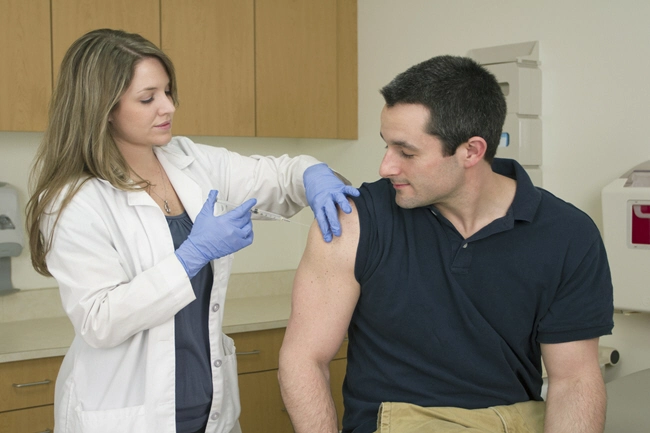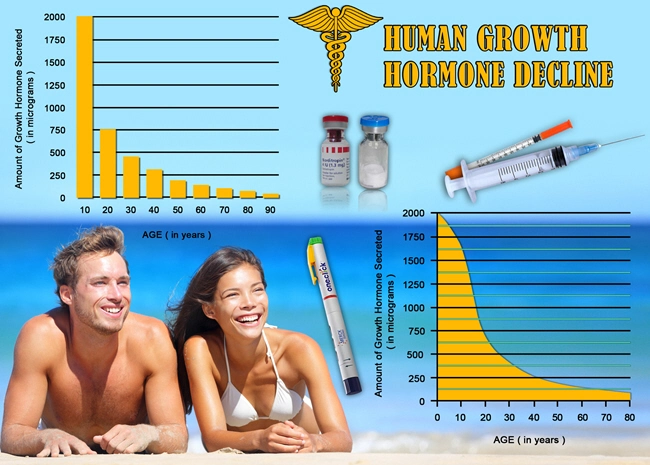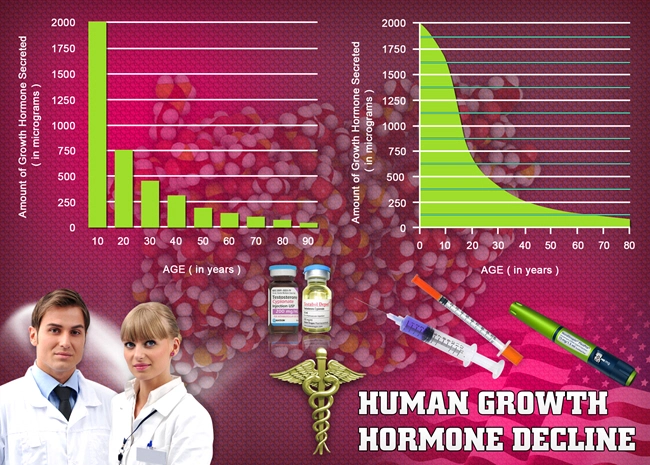
Introduction
Andropause, often referred to as male menopause, is a condition characterized by a gradual decline in testosterone levels as men age, leading to various physical and psychological symptoms. Over the past two decades, the role of mental health support in managing these symptoms has gained significant attention. This article reviews the therapeutic interventions used in the United States to support American males through andropause, focusing on the integration of mental health strategies.
Understanding Andropause
Andropause typically begins in men in their late 40s to early 50s, though it can start earlier or later. Symptoms can include decreased libido, erectile dysfunction, fatigue, depression, and irritability. While hormone replacement therapy (HRT) has been a common treatment, the psychological aspects of andropause have increasingly been recognized as crucial for comprehensive management.
The Evolution of Mental Health Interventions
Over the past 20 years, the approach to treating andropause has evolved significantly. Initially, the focus was primarily on HRT. However, as awareness of the psychological impact of andropause grew, mental health support became an integral part of treatment plans. Cognitive Behavioral Therapy (CBT), mindfulness, and support groups have emerged as key interventions.
Cognitive Behavioral Therapy (CBT)
CBT has been widely used to address the psychological symptoms of andropause. Studies conducted in the United States have shown that CBT can effectively reduce symptoms of depression and anxiety in men experiencing andropause. By helping patients identify and modify negative thought patterns, CBT empowers men to better manage their emotional responses to the physical changes they are undergoing.
Mindfulness and Meditation
Mindfulness-based interventions have also gained popularity. These practices encourage men to focus on the present moment, which can help alleviate stress and improve overall well-being. Research from various American institutions has indicated that regular mindfulness practice can lead to significant improvements in mood and quality of life for men in andropause.
Support Groups and Community
Support groups have proven to be invaluable for men navigating andropause. These groups provide a platform for sharing experiences and coping strategies, reducing feelings of isolation and fostering a sense of community. In the U.S., many healthcare providers now recommend participation in support groups as part of a holistic approach to andropause management.
Integration of Mental Health and Medical Treatment
The integration of mental health support with medical treatments like HRT has been shown to enhance outcomes. A study published in the Journal of Men's Health found that men who received both HRT and psychological support reported higher satisfaction with their treatment and better overall symptom management compared to those who received only HRT.
Challenges and Future Directions
Despite the progress made, challenges remain. Stigma surrounding mental health issues in men can hinder access to these services. Additionally, more research is needed to understand the long-term effects of combined mental health and medical interventions. Future directions may include the development of tailored programs that address the unique needs of American males experiencing andropause.
Conclusion
The past two decades have seen a significant shift in the approach to managing andropause in American males, with mental health support playing a crucial role. The integration of therapies such as CBT, mindfulness, and support groups with medical treatments has led to more comprehensive care and improved outcomes. As awareness continues to grow, it is essential to continue refining these interventions to meet the evolving needs of men in andropause.
Contact Us Today For A Free Consultation
Dear Patient,
Once you have completing the above contact form, for security purposes and confirmation, please confirm your information by calling us.
Please call now: 1-800-380-5339.
Welcoming You To Our Clinic, Professor Tom Henderson.

- Understanding Andropause: Symptoms, Diagnosis, and Management in American Men [Last Updated On: February 28th, 2025] [Originally Added On: February 28th, 2025]
- Andropause: Debunking Myths and Understanding Realities for American Men's Health [Last Updated On: March 17th, 2025] [Originally Added On: March 17th, 2025]
- Andropause and Prostate Health: Navigating the Complex Link for American Males [Last Updated On: March 18th, 2025] [Originally Added On: March 18th, 2025]
- Exploring Supplements for Andropause: Efficacy, Safety, and Management Strategies [Last Updated On: March 18th, 2025] [Originally Added On: March 18th, 2025]
- Managing Andropause: Lifestyle Strategies for American Men's Health and Vitality [Last Updated On: March 19th, 2025] [Originally Added On: March 19th, 2025]
- Andropause and Cognitive Health: Strategies for American Men to Maintain Mental Sharpness [Last Updated On: March 19th, 2025] [Originally Added On: March 19th, 2025]
- Andropause Management: Importance of Regular Check-ups for Aging Men's Health [Last Updated On: March 20th, 2025] [Originally Added On: March 20th, 2025]
- Navigating Andropause: Emotional Well-being and Support for Aging American Men [Last Updated On: March 21st, 2025] [Originally Added On: March 21st, 2025]
- Andropause in American Males: Symptoms, Diabetes Risk, and Management Strategies [Last Updated On: March 22nd, 2025] [Originally Added On: March 22nd, 2025]
- Andropause: Navigating Social Impacts and Support for Aging American Men [Last Updated On: March 22nd, 2025] [Originally Added On: March 22nd, 2025]
- Andropause Effects on Skin: Essential Skincare Tips for American Males [Last Updated On: March 22nd, 2025] [Originally Added On: March 22nd, 2025]
- Andropause: Understanding Symptoms and Embracing Growth in American Males [Last Updated On: March 22nd, 2025] [Originally Added On: March 22nd, 2025]
- Navigating Andropause: Emotional Impacts and Management Strategies for American Men [Last Updated On: March 22nd, 2025] [Originally Added On: March 22nd, 2025]
- Andropause: Mental Health Professionals' Role in Managing Male Menopause Symptoms [Last Updated On: March 22nd, 2025] [Originally Added On: March 22nd, 2025]
- Andropause Effects on Joint Health: Management Strategies for American Men [Last Updated On: March 22nd, 2025] [Originally Added On: March 22nd, 2025]
- Andropause in American Men: Benefits and Risks of Hormone Replacement Therapy [Last Updated On: March 23rd, 2025] [Originally Added On: March 23rd, 2025]
- Andropause: Understanding Male Menopause and Managing Its Effects [Last Updated On: March 23rd, 2025] [Originally Added On: March 23rd, 2025]
- Andropause and Depression in American Men: Symptoms, Links, and Treatment Options [Last Updated On: March 23rd, 2025] [Originally Added On: March 23rd, 2025]
- Managing Andropause: Symptoms, Diagnosis, and Treatment Options for Aging Men [Last Updated On: March 23rd, 2025] [Originally Added On: March 23rd, 2025]
- Andropause: Impact on American Men's Self-Esteem and Coping Strategies [Last Updated On: March 23rd, 2025] [Originally Added On: March 23rd, 2025]
- Andropause: Understanding Symptoms, Family Support, and Healthy Lifestyle Changes for American Men [Last Updated On: March 23rd, 2025] [Originally Added On: March 23rd, 2025]
- Andropause and Hair Loss: Understanding Causes and Exploring Treatment Options for American Males [Last Updated On: March 23rd, 2025] [Originally Added On: March 23rd, 2025]
- Andropause: Navigating Male Menopause with Essential Support Networks [Last Updated On: March 24th, 2025] [Originally Added On: March 24th, 2025]
- Andropause: Understanding and Managing Male Menopause in American Men [Last Updated On: March 24th, 2025] [Originally Added On: March 24th, 2025]
- Managing Andropause: Combating Fatigue with Diet, Exercise, and Holistic Strategies [Last Updated On: March 24th, 2025] [Originally Added On: March 24th, 2025]
- Andropause and Immune Health: Strategies for American Men to Maintain Well-being [Last Updated On: March 25th, 2025] [Originally Added On: March 25th, 2025]
- Andropause and Digestive Health: Strategies for American Males [Last Updated On: March 25th, 2025] [Originally Added On: March 25th, 2025]
- Andropause and Memory: Strategies for American Males to Enhance Cognitive Function [Last Updated On: March 25th, 2025] [Originally Added On: March 25th, 2025]
- Andropause: Managing Muscle Loss in American Males Through Exercise and Nutrition [Last Updated On: March 25th, 2025] [Originally Added On: March 25th, 2025]
- Andropause and Cholesterol Management in American Males: Diet, Exercise, and Medical Options [Last Updated On: March 25th, 2025] [Originally Added On: March 25th, 2025]
- Andropause: Managing Symptoms and Work Performance in American Men [Last Updated On: March 25th, 2025] [Originally Added On: March 25th, 2025]
- Andropause and Vision: Managing Eye Health in Aging American Males [Last Updated On: March 26th, 2025] [Originally Added On: March 26th, 2025]
- Navigating Andropause: Essential Nutrition for American Males [Last Updated On: March 26th, 2025] [Originally Added On: March 26th, 2025]
- Hydration's Crucial Role in Managing Andropause Symptoms in American Men [Last Updated On: March 26th, 2025] [Originally Added On: March 26th, 2025]
- Andropause and Kidney Health: Understanding the Link and Managing Risks [Last Updated On: March 26th, 2025] [Originally Added On: March 26th, 2025]
- Andropause and Energy: Understanding and Managing Decline in American Men [Last Updated On: March 26th, 2025] [Originally Added On: March 26th, 2025]
- Andropause and Thyroid Function: Impacts and Management in American Men [Last Updated On: March 26th, 2025] [Originally Added On: March 26th, 2025]
- Andropause and Dental Health: Tips for American Males to Maintain Oral Hygiene [Last Updated On: March 26th, 2025] [Originally Added On: March 26th, 2025]
- Andropause Impact on Liver Health: Strategies for American Males [Last Updated On: March 26th, 2025] [Originally Added On: March 26th, 2025]
- Mindfulness: A Key Strategy for Managing Andropause Symptoms in American Men [Last Updated On: March 26th, 2025] [Originally Added On: March 26th, 2025]
- Andropause and Blood Pressure: Monitoring and Management Strategies for American Men [Last Updated On: March 27th, 2025] [Originally Added On: March 27th, 2025]
- Community Support Enhances American Men's Andropause Management and Well-being [Last Updated On: March 27th, 2025] [Originally Added On: March 27th, 2025]
- Andropause in American Males: Symptoms, Stress Management, and Quality of Life [Last Updated On: March 27th, 2025] [Originally Added On: March 27th, 2025]
- Andropause Management: The Vital Role of Sleep for American Men's Health [Last Updated On: March 28th, 2025] [Originally Added On: March 28th, 2025]
- Andropause: Understanding Declining Testosterone's Impact on American Men's Motivation and Drive [Last Updated On: March 28th, 2025] [Originally Added On: March 28th, 2025]
- Andropause and Respiratory Health: Symptoms, Impacts, and Management Strategies for American Males [Last Updated On: March 28th, 2025] [Originally Added On: March 28th, 2025]
- Andropause: Managing Mental Health with Essential Mental Health Days for American Men [Last Updated On: March 28th, 2025] [Originally Added On: March 28th, 2025]
- Andropause Management: Exercise Benefits for American Men's Health and Vitality [Last Updated On: March 28th, 2025] [Originally Added On: March 28th, 2025]
- Andropause: Understanding Male Menopause and Its Impact on American Men's Confidence [Last Updated On: March 29th, 2025] [Originally Added On: March 29th, 2025]
- Andropause: Understanding Male Menopause and Essential Health Screenings for Aging Men [Last Updated On: March 29th, 2025] [Originally Added On: March 29th, 2025]
- Andropause and Emotional Intelligence: Enhancing Men's Well-being [Last Updated On: March 30th, 2025] [Originally Added On: March 30th, 2025]
- Andropause and Hearing Loss: Understanding the Link in American Males [Last Updated On: March 31st, 2025] [Originally Added On: March 31st, 2025]
- Andropause Management: The Therapeutic Role of Hobbies for American Men [Last Updated On: April 1st, 2025] [Originally Added On: April 1st, 2025]
- Andropause and Creativity: Managing Decline in American Men's Cognitive Output [Last Updated On: April 2nd, 2025] [Originally Added On: April 2nd, 2025]
- Andropause and Allergies: Managing Symptoms for American Men's Health [Last Updated On: April 3rd, 2025] [Originally Added On: April 3rd, 2025]
- Managing Andropause: Goal Setting for American Men's Health and Well-being [Last Updated On: April 5th, 2025] [Originally Added On: April 5th, 2025]
- Andropause and Skin Sensitivity: Management Strategies for American Men [Last Updated On: April 5th, 2025] [Originally Added On: April 5th, 2025]
- Andropause: Understanding Its Impact on American Men's Purpose and Well-being [Last Updated On: April 6th, 2025] [Originally Added On: April 6th, 2025]
- Andropause and Foot Health: Strategies for American Men to Maintain Mobility and Well-being [Last Updated On: April 7th, 2025] [Originally Added On: April 7th, 2025]
- Andropause: Managing Symptoms with Time Management and Lifestyle Strategies [Last Updated On: April 7th, 2025] [Originally Added On: April 7th, 2025]
- Technology Revolutionizes Andropause Management for American Men [Last Updated On: April 10th, 2025] [Originally Added On: April 10th, 2025]
- Andropause: Navigating Declining Testosterone and Maintaining an Adventurous Life [Last Updated On: April 11th, 2025] [Originally Added On: April 11th, 2025]
- Andropause Impact on Nail Health: Strategies for American Males [Last Updated On: April 11th, 2025] [Originally Added On: April 11th, 2025]
- Volunteering: A Holistic Approach to Managing Andropause Symptoms in Men [Last Updated On: April 11th, 2025] [Originally Added On: April 11th, 2025]
- Andropause Impact on Eye Health: Risks and Management Strategies for American Males [Last Updated On: April 12th, 2025] [Originally Added On: April 12th, 2025]
- Andropause: Managing Its Impact on Hand Health in American Men [Last Updated On: April 12th, 2025] [Originally Added On: April 12th, 2025]
- Andropause and Lifelong Learning: Empowering American Men's Health Journey [Last Updated On: April 13th, 2025] [Originally Added On: April 13th, 2025]
- Travel as Therapy: Managing Andropause in American Men [Last Updated On: April 14th, 2025] [Originally Added On: April 14th, 2025]
- Andropause and Ear Health: Protecting Hearing in Aging American Males [Last Updated On: April 15th, 2025] [Originally Added On: April 15th, 2025]
- Andropause Effects on Oral Health: Managing Tongue and Saliva Changes in Aging Men [Last Updated On: April 16th, 2025] [Originally Added On: April 16th, 2025]
- Andropause in American Males: Understanding Its Impact on Nose Health [Last Updated On: April 17th, 2025] [Originally Added On: April 17th, 2025]
- Music Therapy: A Holistic Approach to Managing Andropause in American Men [Last Updated On: April 18th, 2025] [Originally Added On: April 18th, 2025]
- Andropause Management: Harnessing Art for Psychological and Cognitive Health in American Men [Last Updated On: April 18th, 2025] [Originally Added On: April 18th, 2025]
- Andropause Impact on Throat Health: Symptoms and Management Strategies for American Men [Last Updated On: April 18th, 2025] [Originally Added On: April 18th, 2025]
- Andropause: Financial Planning Strategies for American Men's Health and Retirement [Last Updated On: April 18th, 2025] [Originally Added On: April 18th, 2025]
- Andropause: Impact on American Men's Humor and Cultural Identity [Last Updated On: April 19th, 2025] [Originally Added On: April 19th, 2025]
- Andropause: Navigating Identity and Masculinity in Aging American Men [Last Updated On: April 20th, 2025] [Originally Added On: April 20th, 2025]
- Andropause in American Men: Enhancing Life with Social Connections [Last Updated On: April 20th, 2025] [Originally Added On: April 20th, 2025]
- Understanding Andropause: Symptoms, Diagnosis, and Management Strategies for Men [Last Updated On: April 21st, 2025] [Originally Added On: April 21st, 2025]
- Andropause: Understanding Male Menopause and Its Impact on Belonging in American Men [Last Updated On: April 21st, 2025] [Originally Added On: April 21st, 2025]








